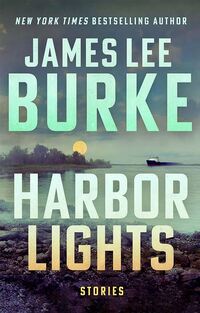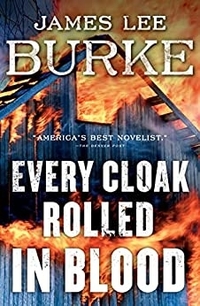Don't Forget Me, Little Bessie by James Lee Burke
 Monday, June 2, 2025 at 9:59AM
Monday, June 2, 2025 at 9:59AM 
Published by Atlantic Monthly Press on June 3, 2025
James Lee Burke earned a laminated spot on my list of top three crime fiction authors with his Robicheaux novels. He blends elements of westerns and crime thrillers in his Holland family novels. I’ve enjoyed every Burke novel I’ve read, although Don’t Forget Me, Little Bessie — a Holland family novel that focuses on Bessie Holland when she was in her early teens — is a notch below my favorites.
Bessie lives in Texas with her father, Hackberry Holland. Most of the story takes place in 1916, when Bessie is fifteen. Hackberry is a former Texas Ranger. Bessie tells us that “Mama used to say he was the best and bravest man on the Rio Grande, if only he didn’t drink.” When he isn’t drinking, gambling, or working his ranch, Hackberry is in Mexico chasing Pancho Villa, who has been leading his revolutionary army in attacks across the US border, much to the delight of Germany.
Soon after the story opens, Jubal Fowler peeps at Bessie Holland “through the slats of the schoolyard outhouse.” When Bessie’s brother Cody confronts him, Jubal uses a slingshot to shoot a marble into Cody’s eye. Cody will eventually leave to find a life in New York. Middle chapters of the novel follow Bessie to New York, where she has adventures in the city’s slums before returning to her father in Texas.
When Hackberry confronts Winthrop Fowler, Jubal’s father, about the marble incident, Bessie reacts to a perceived threat against her father in a way that leaves Winthrop disabled. Only a fib told by a man named Mr. Slick saves Bessie from prison.
Hackberry has a friend named Bertha Lafleur, whose life he saved when he was a Ranger. Bertha is now a madam who manages a brothel. Bessie is a Baptist who condemns Bertha and doesn’t believe her father should associate with her. That’s probably true, not because Bertha manages prostitutes but because she is willing to assist a heroin dealer in a way that betrays her friendship with Hackberry.
Bessie is more than a bit judgmental and something of a hypocrite, given the number of times she threatens to kill characters, all the while telling them not to swear in her presence. She’s also intolerably bossy, which I suppose captures the spirit of fifteen-year-old girls throughout history.
Bessie has few friends. One is Mr. Slick, although Bessie believes him to be a spirit, notwithstanding his eagerness to join her for meals whenever she invites him. Thriller authors can’t seem to resist the opportunity to introduce the supernatural into their fiction. Mr. Slick seemed like a pointless character to me.
Jubal Fowler is not exactly Bessie’s friend, although she finds herself attracted to him. While the Holland and Fowler families are in something of a feud, the attraction seems to be mutual when Fowler shields Bessie from being raped. He does nothing to prevent the rape of Bessie’s friend and English teacher, Ida Banks, in Bessie’s presence.
The supernatural also intrudes in the form of a little girl who was raped and killed but makes herself visible to Bessie when her grave is disturbed by oil drilling. Bessie seems to be living the little girl’s life, although we know from the start that Bessie is narrating this story many years after it occurred and thus is not killed like the little girl. Bessie will nevertheless experience another incident of sexual violence before the story ends. The novel’s rape scenes are not graphic but sensitive readers might find them disturbing.
During Hackberry’s absence, Bessie makes a deal with an oil company to allow drilling on the Holland ranch in an effort to save the family home from her father’s gambling debts. Bessie’s alliance with an oil company employee gives her another man to set her raging hormones afire, although her Baptist morals (and perhaps her own victimization) cool her desire. The oil man is too honorable to be working in the oil industry, which naturally does it best to cheat the Hollands as it goes about its business of decimating the Texas landscape. “There was a stench in the air like rotten eggs, a monotonous clanking of oil derricks, and a sky dark with soot, the fields lit with thousands of tiny tin flames that resembled rose petals.”
As is always true of a Burke novel, the story moves quickly. Uneventful scenes are punctuated with moments that generate tension. As is always true of a Holland novel, the story is filled with historical insights. I wasn’t as taken with the plot, or with Bessie as a protagonist, as I have been with the stories and characters in other Holland novels, but Burke is one of the best prose stylists in American crime fiction. I enjoyed the novel more for the pleasure of Burke’s language than for the story he tells, despite its regular moments of excitement and dread.
RECOMMENDED



